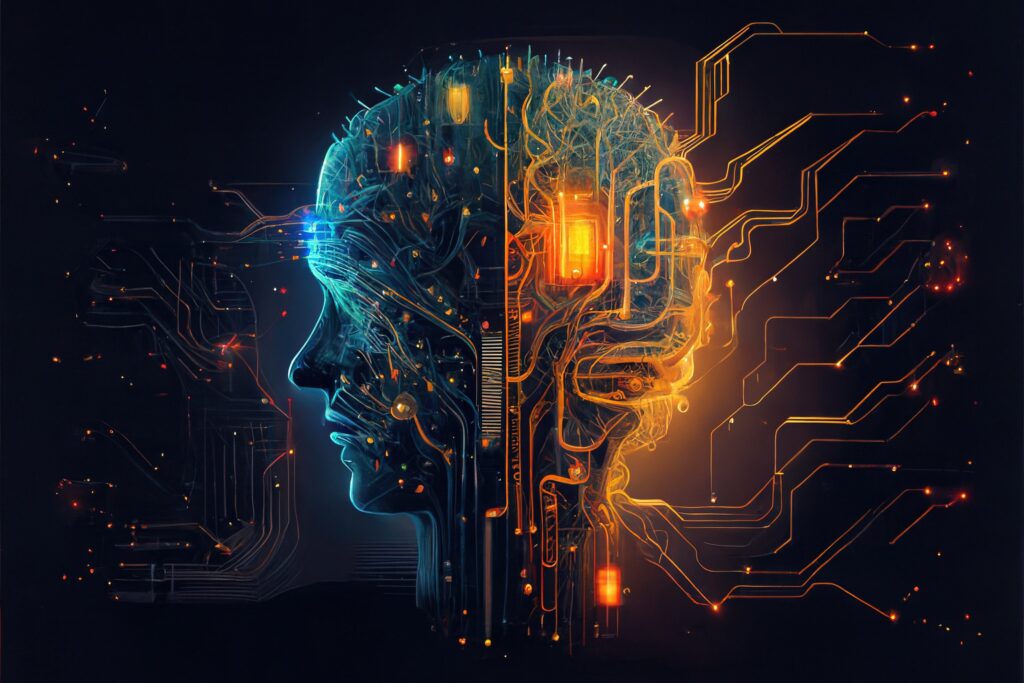The world of software development is changing faster than ever before. What used to take teams of developers weeks to build can now be generated by artificial intelligence in minutes. From tools like GitHub, Copilot and ChatGPT to enterprise-grade AI code assistants, automation is rewriting the rules of programming.
The new wave of technology has introduced a bold question:
If AI can generate functional code, what happens to the role of human developers?
The truth is, they’re not disappearing – they’re evolving. Developers are transforming into AI architects, professionals who design, guide, and refine intelligent systems rather than just writing every line of code.
The Rise of AI-Generated Code
AI-generated code relies on large language models (LLMs) – AI systems trained on billions of lines of existing code. These models can understand prompts written in plain English and translate them into working programs.
For example, you could type: “Create a responsive website with a user login and dashboard.”
And within seconds, AI can generate the base code for it.
This shift saves time, reduces manual effort, and allows developers to focus on innovation, logic, and design rather than repetitive syntax.
Companies around the world are now integrating AI coding assistants into their workflows to:
- Accelerate development timelines
- Reduce costs
- Improve code quality and consistency
- Support teams with real-time suggestions and fixes
As AI takes on more of the manual work, developers are stepping into a strategic and creative role.
Developers as AI Architects
As AI takes on more of the manual work, developers are stepping into a strategic and creative role.
Here’s how their responsibilities are changing:
- From Coders to Conductors:
Instead of writing every piece of code, developers now orchestrate what AI builds. They design the system, define logic, and guide the AI toward a desired outcome.
- From Syntax to Strategy:
Understanding how components fit together – security, scalability, and architecture – is now more important than writing individual functions.
- From Builders to Validators:
Developers test and refine what AI produces, ensuring the generated code meets performance, security, and ethical standards.
- From Doers to Innovators:
By freeing up time from routine work, developers can focus on creating new digital products, solving complex challenges, and leading innovation.
In short, AI doesn’t replace human intelligence – it amplifies it.
Benefits of AI-Generated Coding
AI-assisted development is creating real impact across industries:
- Speed: Projects that once took weeks can now be delivered in days.
- Efficiency: AI reduces repetitive coding tasks, letting humans focus on problem-solving.
- Accuracy: AI helps detect bugs and inconsistencies early.
- Accessibility: Junior developers can learn faster by studying AI-generated code examples.
This blend of human creativity and machine precision is making software development more productive and inclusive than ever.
Challenges and Concerns
While the benefits are clear, AI-generated code also brings a few challenges:
- Quality Assurance: AI may produce incorrect or redundant code that needs human review.
- Security Risks: Vulnerabilities could arise if AI pulls unsafe logic from training data.
- Legal Questions: The ownership of AI-generated code is still under debate.
- Ethical Responsibility: Developers must ensure AI tools are used responsibly and without bias.
As a result, the next generation of developers must combine technical expertise, AI literacy, and ethical judgement.
The Future of Software Development
Looking ahead, the future of coding will be about collaboration between humans and AI. Developers will define the problems, and AI will generate the solutions.
We’ll see the rise of AI-first development environments, where teams focus on designing goals, user experience, and innovation – while AI handles much of the technical execution.
In this world, developers won’t just code – they’ll architect intelligence, shaping how machines think, learn, and create.
Conclusion
AI-generated code represents a major milestone in the evolution of technology. It doesn’t make developers obsolete – it elevates their role.
The developers of tomorrow will be more strategic, more creative, and more essential than ever. They’ll guide intelligent systems, define ethical boundaries, and design the digital ecosystems that power the modern world.
As AI continues to learn from humans, humans will continue to lead the learning – proving that the future of technology is not man or machine, but man and machine, building together.

